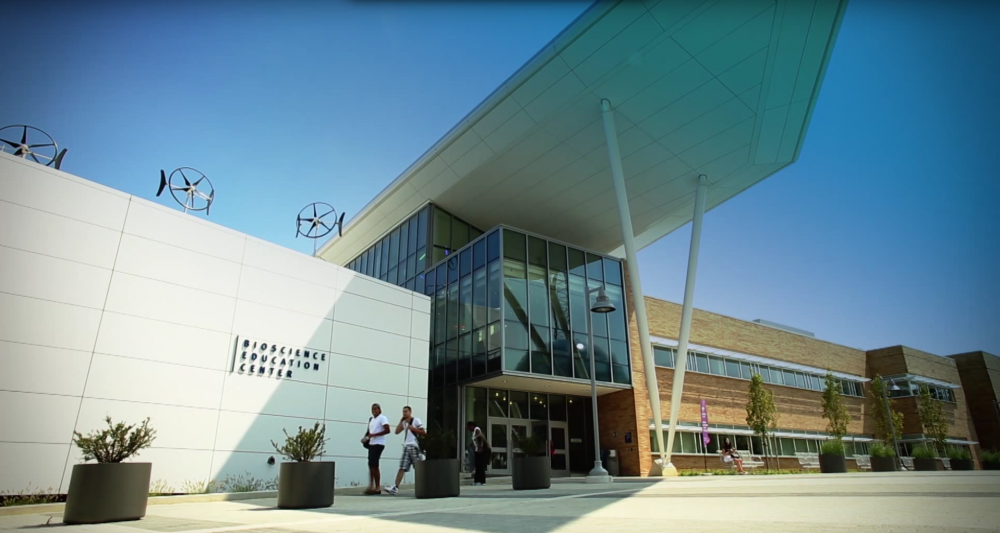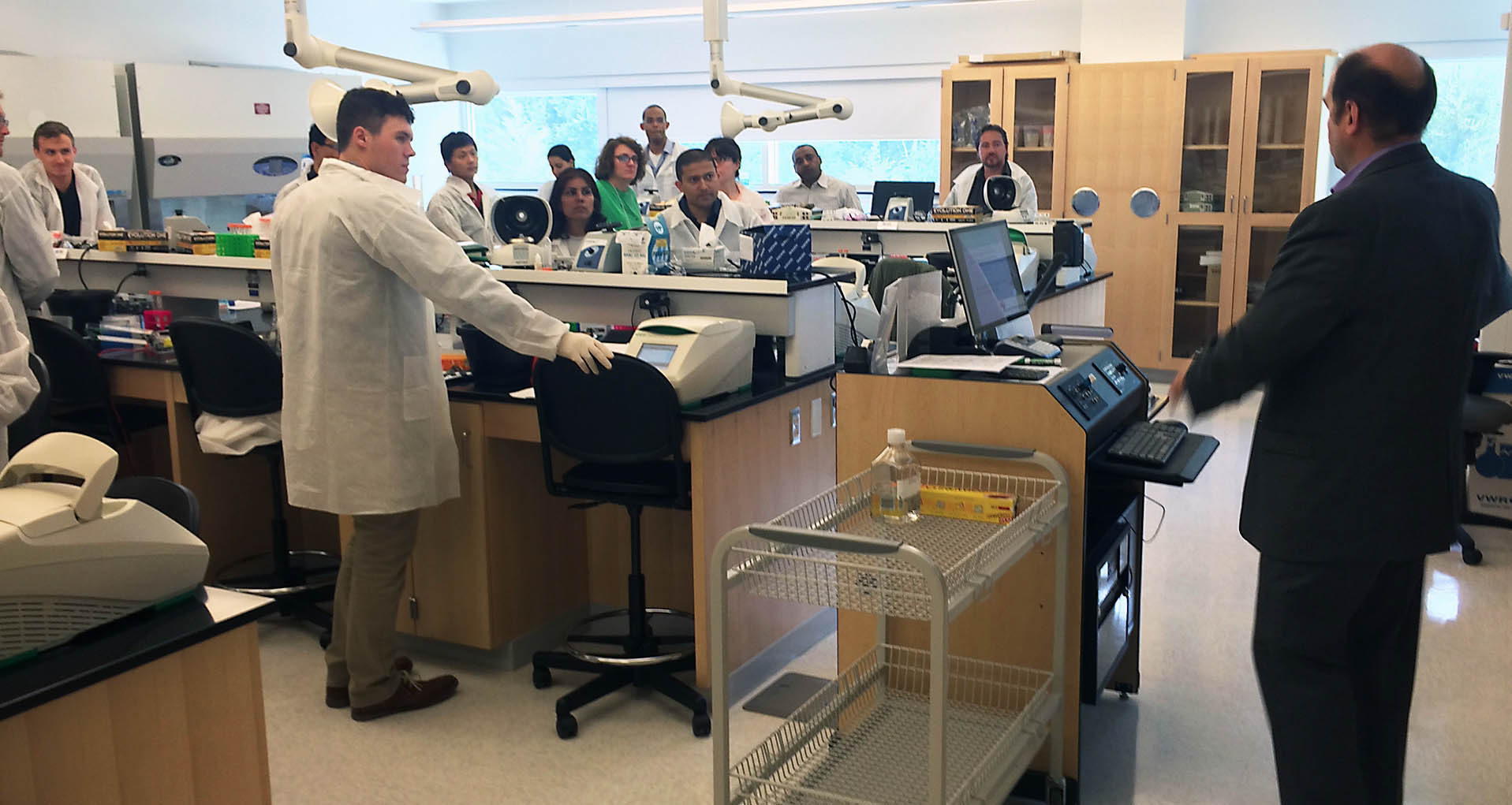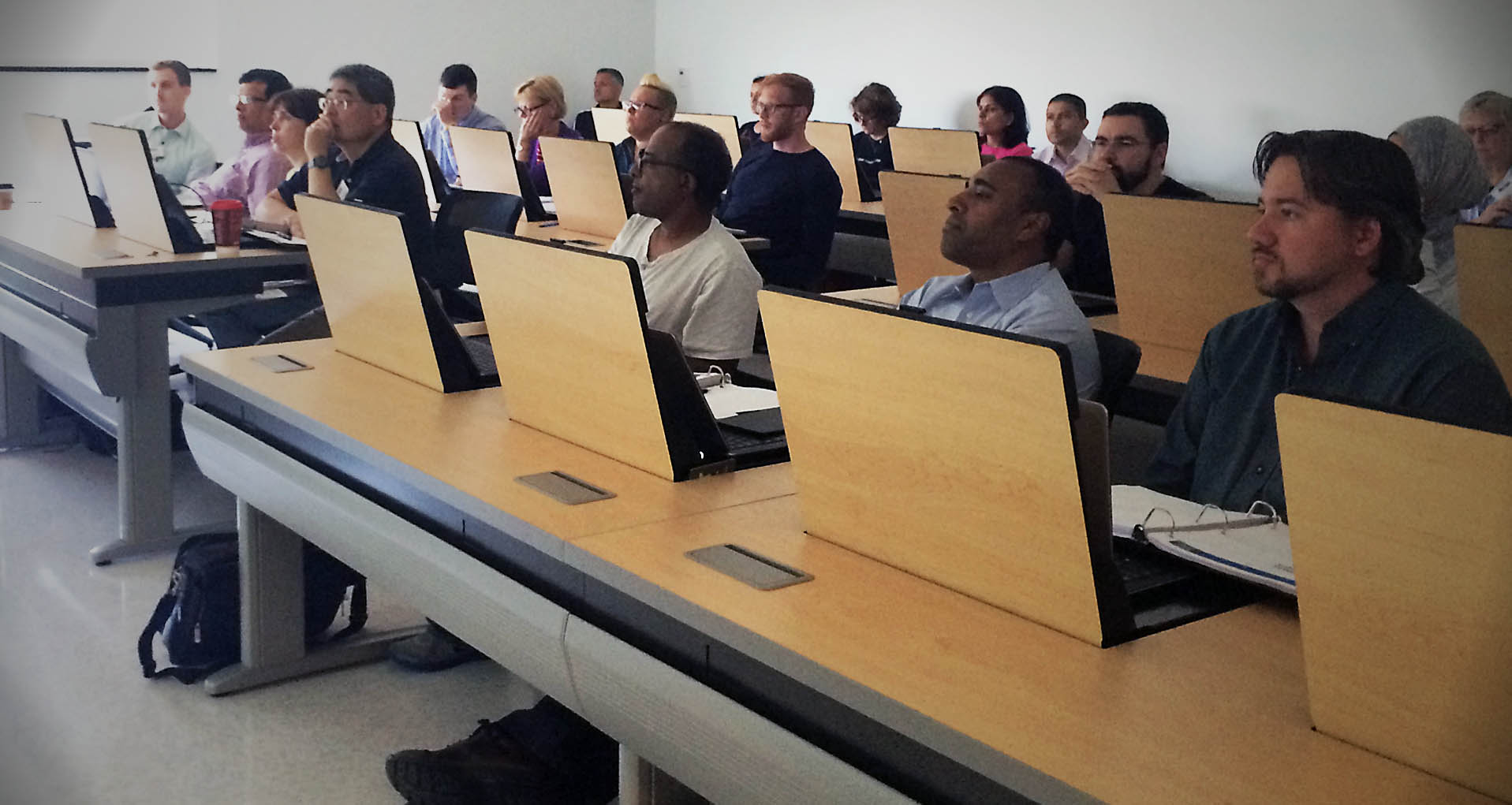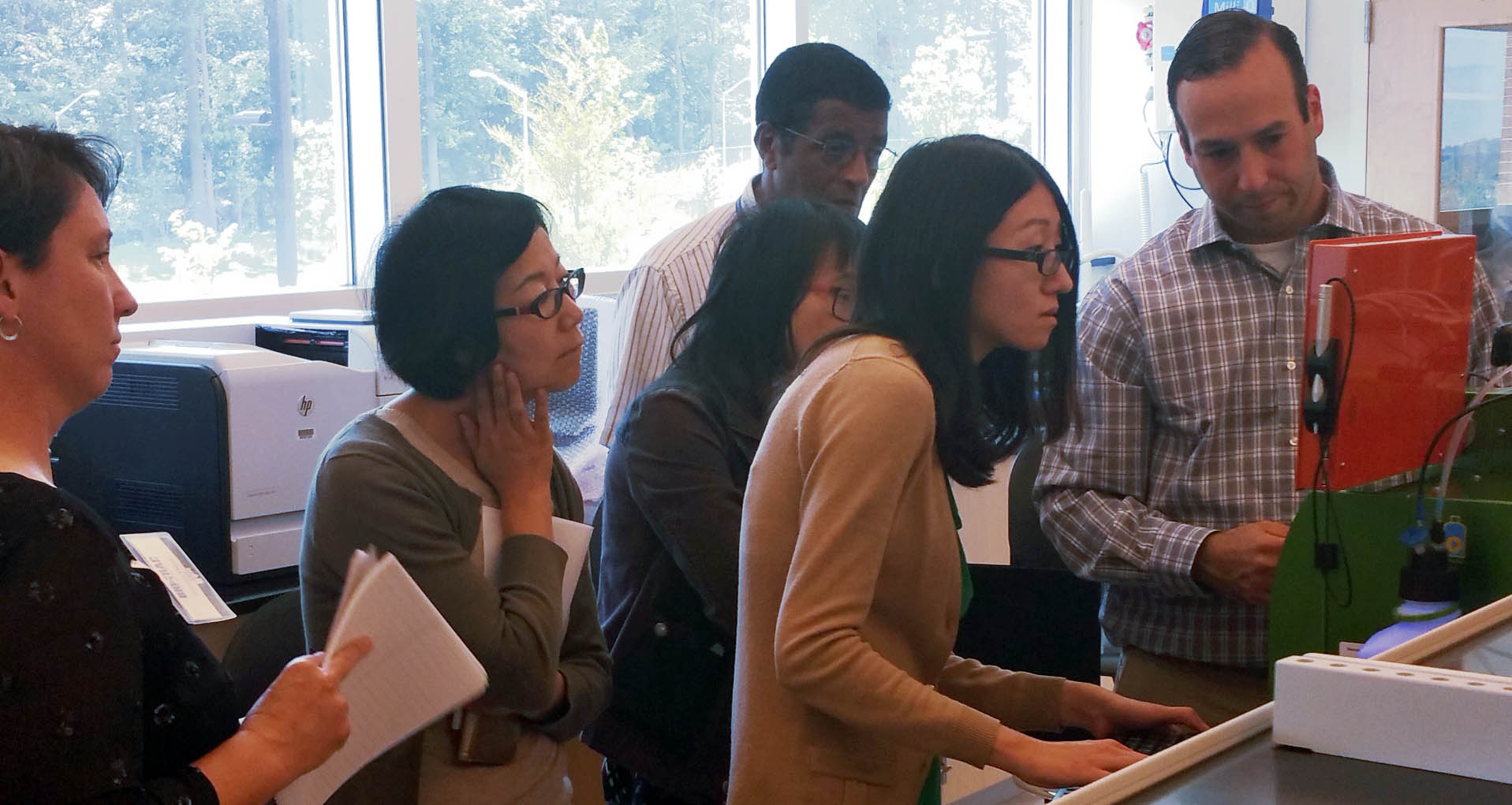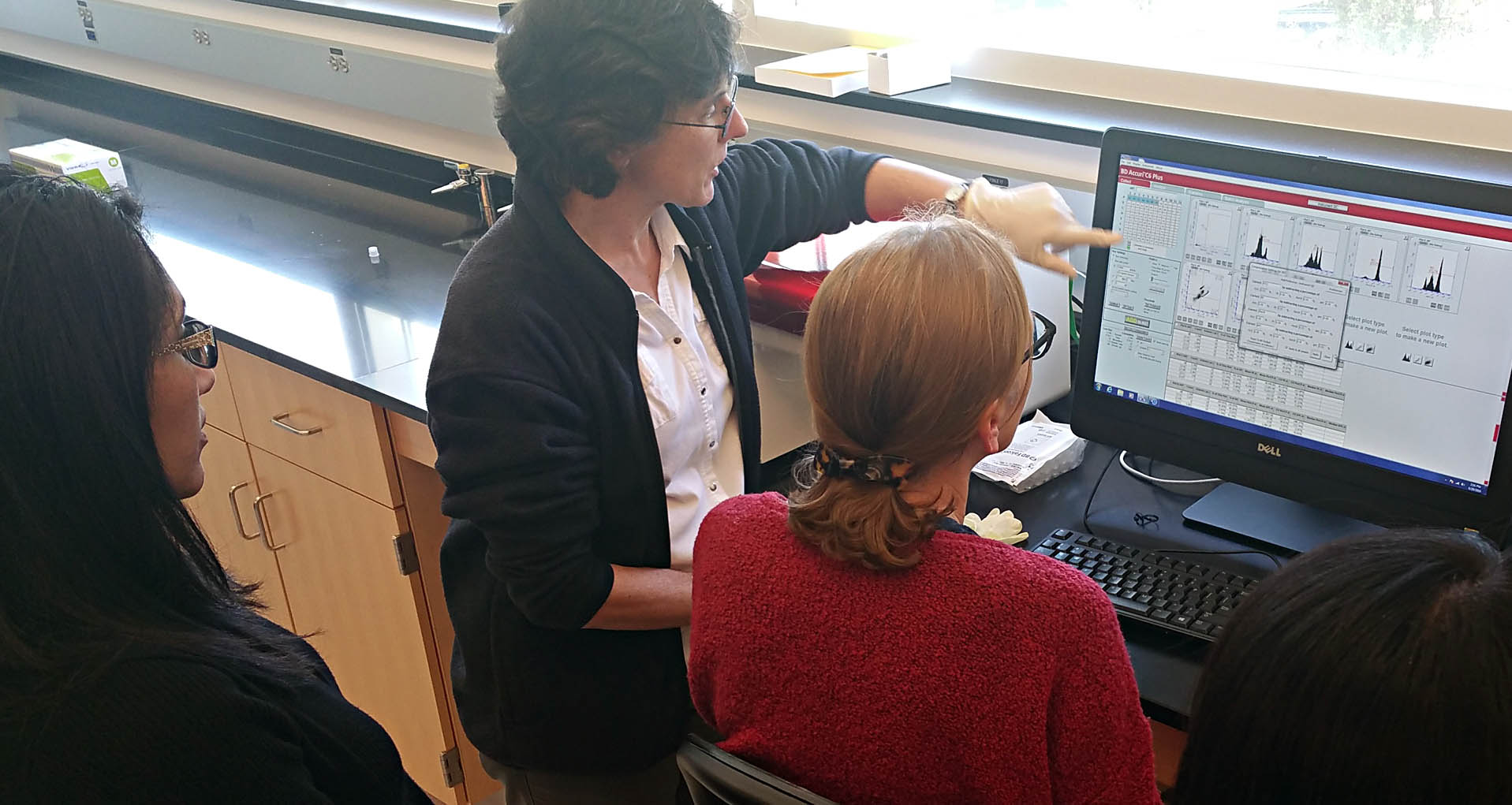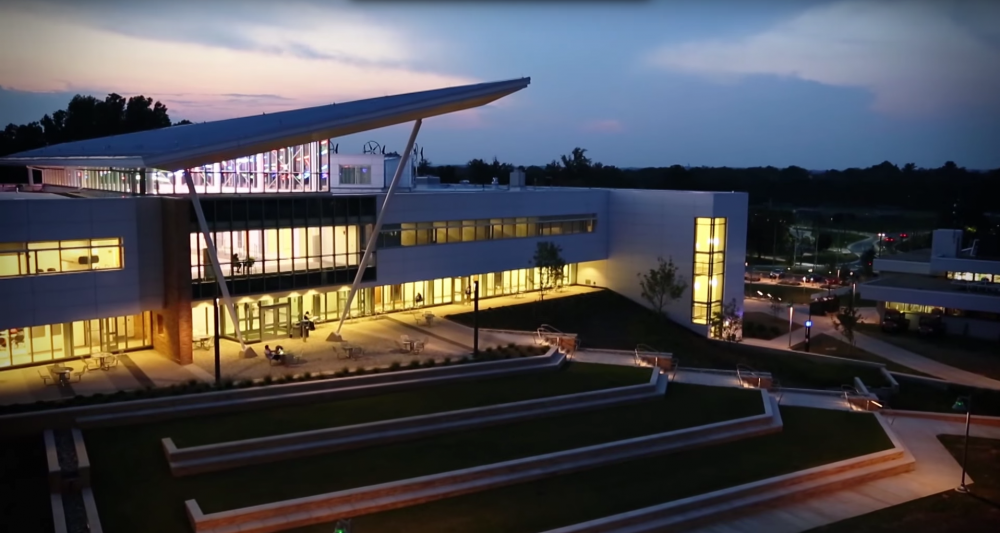September 9-10, 2024
Monday-Tuesday
Germantown, MD
The Bioscience Education Center
9:00am-5:00pm
1 Hour Lunch Break
The symposium features esteemed experts from pathology, spatial biology, multiplex immunofluorescence, artificial intelligence, and translational medicine to explore the latest advancements in the field. Focused on predictive and prognostic models, this gathering offers captivating presentations and insightful discussions.
 | Symposium Lecture Series |
 | All attendees receive a thumbnail drive with comprehensive workshop materials. |
 | Symposium Participants: 85 |
 | $695 |
-
"It is well organized workshop. Instructors are knowledgeable and helpful. The course mainly focuses on DNA methylation and its related techniques. If it is the field you are interested in, I recommend this course."
Shale Lei
University of Nebraska Omaha
Advances in Epigenetics 1/17
-
"Amazing learning experience. I made new friend, learned new knowledge and made further collaborations. It was worth attending this workshop."
Dhananjay Gupta
University of Vermont
Advances in Epigenetics 1/17
-
"The instructors for the “Advances in Epigenetics” were outstanding."
Jim DeWille
Ohio State University
Advances in Epigenetics 1/17
-
"This is a very well organized program. Lectures always convey the most advanced knowledge and technologies. Hands-on practice is also very helpful. Highly recommend to colleagues in or out of NIH community."
Guangpu Shi, M.D.
Research Fellow, NEI/NIH
iPSC: Reprogramming, Differentiation and Gene Editing with CRISPR 8/16
-
"I highly recommend this course to someone who seek opportunities for epigenetics research and analysis. Presenters and lectures are very nice and experts in this field."
Bongsoo Park
Johns Hopkins School of Public Health
Advances in Epigenetics 1/17
-
"Bio-Trac offers wonderful workshops that provide up-to-date, useful technological information and knowledge important for my research applications."
Thuy Phung, MD, PhD
Baylor College of Medicine
NGS 10/16
| SPONSORS | ||
|---|---|---|
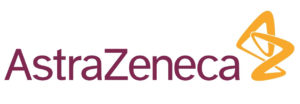 |
2024 Speakers
 | Michael Surace, PhD AstraZeneca Course Director |
 | Thazin Nwe Aung, PhD Yale School of Medicine |
 | Tullia Bruno, PhD University of Pittsburgh Medical Center |
 | Maxime Dhainaut, PhD Noetik |
 | Travis J. Hollman, MD, PhD Bristol Myers Squibb, Head of Translational Pathology |
 | William Huang, MD, PhD Broad Institute of MIT and Harvard |
 | Arutha Khulasinge Frazer Institute University of Queensland |
 | Jiwoon Park, PhD Weill Cornell Medicine |
 | Vladimir Roudko, PhD AstraZeneca |
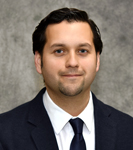 | Kurt Schalper, MD, PhD Yale University School of Medicine |
 | Peter Sorger, PhD Harvard University |
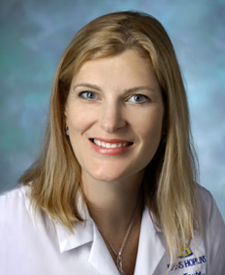 | Janis M. Taube, MD Johns Hopkins Medical Institute |
Check back for updates on lecture topics and speaker additions.
Presenter Bios
Thazin Nwe Aung, PhD — Yale School of Medicine
Thazin Nwe Aung obtained her PhD in biomedical science under the supervision of Prof. David Adelson at the University of Adelaide, Australia in 2019. During her PhD, she focused on understanding the mechanisms of cellular signaling, communications and interactions, especially those involving cancer apoptosis, metastases, and immune function by using molecular genetics and systems biology approaches. Upon completion of her PhD, she moved to Yale University. Her current work focuses on identifying prognostic/predictive biomarkers associated with response/resistance to treatments in cancer using spatial omics.
Tullia Bruno, PhD - University of Pittsburgh Medical Center
Tullia C. Bruno, PhD, is an Assistant Professor in the Department of Immunology at the University of Pittsburgh and a faculty member in the Tumor Microenvironment Center and the Cancer Immunology and Immunotherapy Program at the UPMC Hillman Cancer Center. She obtained her Ph.D. in Immunology from Johns Hopkins in 2010 and completed her postdoctoral fellowship at the University of Colorado in 2015—both with a focus in tumor immunology. While Dr. Bruno’s PhD training focused on inhibitory receptors on intratumoral T cells, she became interested in the role of B cells and tertiary lymphoid structures (TLS) in the tumor microenvironment (TME) during her postdoctoral fellowship and has built her independent research program around understanding intratumoral B cell and TLS function in multiple human cancers. Dr. Bruno’s research lab has an overt focus on studying immunity within cancer patients, which makes her research highly translational with the potential for future clinical trials targeting B cells. Thus, Dr. Bruno’s overall research objective is to develop a B cell-specific immunotherapy in the next five to ten years. Dr. Bruno is actively involved in the UPMC Hillman community, and is an advocate for women in science, as is evidenced by her current role as chair of the UPMC Hillman Women's Initiatives Taskforce and her contributions to the Society of Immunotherapy's Women in Immunotherapy group.
Maxime Dhainaut, PhD — Noetik
Director, Spatial Functional Genomics at Noetik. I did my postdoctoral research at Icahn School of Medicine, focusing on immune-oncology. Associate Director of Early Discovery at ImmunAI.
Travis J. Hollman, MD, PhD – Bristol Myers Squibb, Head of Translational Pathology
Physician scientist and pathologist advancing patient care with innovation and consistent progress. I enjoy building cross-discipline scientific collaborations to overcome the most significant challenges in science and medicine.
Today: I direct solid tumor pathology, IHC and histology within Translational Medicine at Bristol Myers Squibb. Our team plans and executes biomarker programs for early through late stage development while providing enterprise medical and scientific support. We also work at the forefront of patient tissue analysis using next-gen platforms, digital pathology, machine learning and AI to drive precision medicine and drug development.
Yesterday: For much of my career, I was a scientist and a clinical dermatopathologist at affiliated teaching hospitals. Most recently, I was an Associate Attending Physician at Memorial Sloan Kettering Cancer Center and the Director of Advanced Immunomorphology Platforms. While at MSKCC, I practiced dermatopathology and I served in several laboratory investigator leadership positions including being founding Director of the Parker Institute for Cancer Immunotherapy (PICI) Pathology Lab, Co-Director of the GE Single Cell Proteomics Program and Co-Lead of the Human Tumor Atlas Network Characterization Unit. I have been an investigator in basic and translational studies funded through federal grants and private foundations (SUTC, HTAN, MRA, SPORE, R01) and with pharma partners. Early on, I was a Melanoma Research Alliance Young Investigator in the lab of Jedd Wolchok. Prior to MSKCC, I trained and worked at Harvard Medical School performing combinatorial immunotherapy bench science in Arlene Sharpe’s lab and as practicing dermatopathologist at Brigham and Women’s Hospital. Throughout my career, I have provided education for students and physicians (GME, CME, medical/graduate), consistently published in high impact journals and mentored several laboratory research assistants, students, medical residents and fellows.
William Huang, MD, PhD — Broad Institute of MIT and Harvard
Dr. Hwang is Assistant Professor of Radiation Oncology at Harvard Medical School, Principal Investigator of the Laboratory for Spatial and Systems Oncology (LaSSO) at the Center for Systems Biology and Center for Cancer Research, Attending Physician in the Department of Radiation Oncology Gastrointestinal Service at Massachusetts General Hospital, and Associated Scientist at the Broad Institute of MIT and Harvard. Dr. Hwang has had a long-standing interest in the immense temporal and spatial heterogeneity of biological systems and the many insights that can only be gleaned by studying systems at the level of their individual components—single molecules or cells. His work has been honored with numerous awards including the Rhodes Scholarship, P.D. Soros Fellowship for New Americans, Martha Gray Prize for Excellence in Research, Seidman Prize for Outstanding Thesis, summa cum laude honors from Harvard Medical School, MGH Clinical Research Award, William Shipley Research Award, ASCO/CCF Young Investigator Award, AACR NextGen Star, and Burroughs Wellcome Fund Career Award for Medical Scientists.
The Hwang lab is focused on studying tumor-stroma interactions at unprecedented resolution through the development and application of techniques in single-cell and spatial biology, multiplexed imaging, and functional genetic screens to patient-derived specimens, organoids, and mouse models to elucidate mechanisms of (1) therapeutic resistance mediated by genetic, epigenetic, and phenotypic factors including cell state plasticity; (2) treatment-mediated remodeling of the spatial microarchitecture of tumors and underlying cancer cell-stromal interactions; and (3) tumor-nerve crosstalk, which plays a critical role in the pathophysiology and morbidity of many malignancies but remains understudied.
Arutha Khulasinge, PhD — Frazer Institute University of Queensland
Dr Arutha Kulasinghe is a Senior Research Fellow and leads the Clinical-oMx Lab at the University of Queensland. Dr Kulasinghe has pioneered spatial transcriptomics using digital spatial profiling approaches in the Asia-Pacific region, contributing to world-first studies for lung cancer, head and neck cancer, and COVID-19. His research aims to understand the underlying pathobiology by using an integrative multi-omics approach.
Jiwoon Park, PhD — Weill Cornell Medicine
Researcher/engineer with a Ph.D. in Physiology, Biophyics, and Systems Biology currently exploring experimental and computational platforms to model biological/molecular behaviors in the human physiology.
Vladimir Roudko, PhD — AstraZeneca
I am a computational immunologist and molecular biologist with research interests laying at the intersection of high-dimensional data analysis and novel technology development with the aim of identifying novel immune biomarkers of disease and response to therapy. I did my doctoral studies in fundamental mechanisms of eukaryotic RNA stability and decay and subsequently I continued my work in USA at Weill Cornell Medicine and Mount Sinai where I learnt about molecular principles of human tumor immunology using both computational and experimental approaches. During the course my studies I developed strong interest towards bid data exploration and understanding. Currently, my work is mainly focused on problems of multimodal clinical data integration and analysis of single cell sequencing, spatial transcriptomics, high content imaging and proteomics datasets with the aim to describe mechanisms and biomarkers of cancer immunotherapy response and resistance. Along these aims my team is developing novel methods and benchmarks to tailor computational workflows for particular scientific questions and needs. Ultimately, these findings might be translated into strategies useful to improve cancer recognition and elimination by host immune system.
Kurt Schalper, MD, PhD – Yale University School of Medicine
Dr. Schalper trained as cell/molecular biologist and surgical pathologist. His professional experience includes clinical molecular diagnostics and development of cancer biomarkers. His laboratory focuses on understanding dominant immune evasion pathways in human solid tumors and deciphering the structural/functional determinants of the tumor immune microenvironment in lung cancer. Dr. Schalper is also the director of the Translational Immuno-oncology Laboratory at the Yale Cancer Center where he leads the standardized analysis of biomarkers in clinical trials using advanced cell/tissue analysis platforms.
Peter Sorger, PhD — Harvard University
I am the Otto Krayer Professor of Systems Pharmacology at Harvard Medical School; I was previously a Professor of Biology and Biological Engineering at MIT. I cofounded Merrimack Pharmaceuticals and Glencoe Software and am an advisor to multiple public and private companies and research institutes in the US, Europe and Japan. My research focuses on signal transduction networks controlling cell proliferation and death, dysregulation of these networks in cancer and inflammatory diseases and mechanisms of action of therapeutic drugs targeting signaling proteins. As founding head of the Harvard Program in Therapeutic Science (HiTS) and its Laboratory Systems Pharmacology (LSP) I lead a multi-institutional effort to advance the basic and translational science used to develop new medicines, create novel drug combinations and identify responsive patients.
Michael Surace, PhD, AstraZeneca
Michael Surace received a BS in Biology from JMU in 2004 before working as a laboratory technician in Pathology at UVA for two years. In 2006 he moved to Blacksburg, VA to pursue graduate studies in nuclear receptor/ TLR cell signaling crosstalk in the polarization of macrophage activation phenotypes. He received his PhD from Virginia Tech in 2010. He took two postdocs at MCV in Richmond, first in the Department of Anatomy and Neurobiology investigating the role of microglial activation in response to toxic insult in Parkinson’s Disease, then in Molecular Biology and Biochemistry, working on astrocytes as inflammatory immune cells in multiple sclerosis. In 2015 he joined STCube Pharmaceuticals as a research scientist where he started working with multiplex immunofluorescesce and image analysis to support mechanistic research, which led to his current position at Medimmune, as a scientist developing the company’s multiplex immunofluorescence program for research and clinical trials.
Janis M. Taube, MD, Johns Hopkins Medical Institute
Dr. Janis Taube is an associate professor of dermatology and pathology at the Johns Hopkins University School of Medicine and a member of the Johns Hopkins Kimmel Cancer Center. Her area of clinical expertise is dermatopathology. Dr. Taube serves as the Director of the Division of Dermatopathology and as the Assistant Director of the Dermatoimmunology Laboratory at the School of Medicine.
She is one of the lead scientific researchers in the Department of Dermatology at Johns Hopkins. Her research is related to the study of the B7-H1 molecule. Dr. Taube and her team are seeking to identify the signaling mechanisms behind B7-H1 expression.
She is a member of the College of American Pathologists, United States and Canadian Academy of Pathology, American Society of Dermatopathology and Dermatology Foundation.

